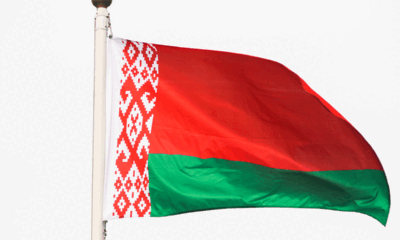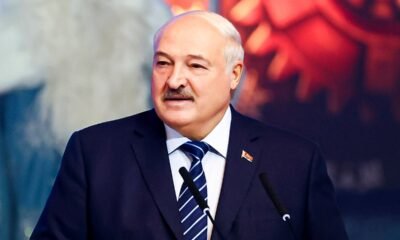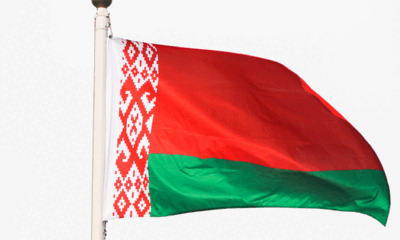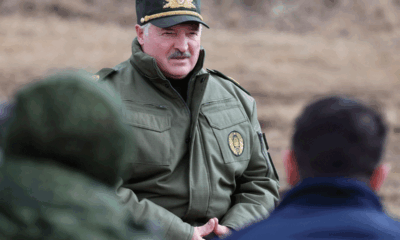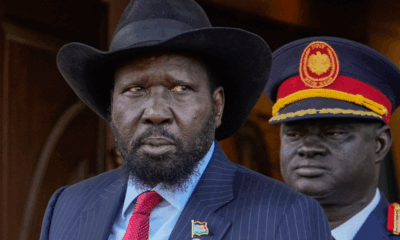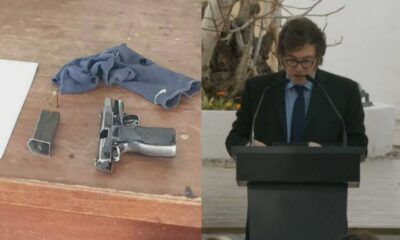INTERNACIONAL
Belarus declines observation invite for parliamentary elections
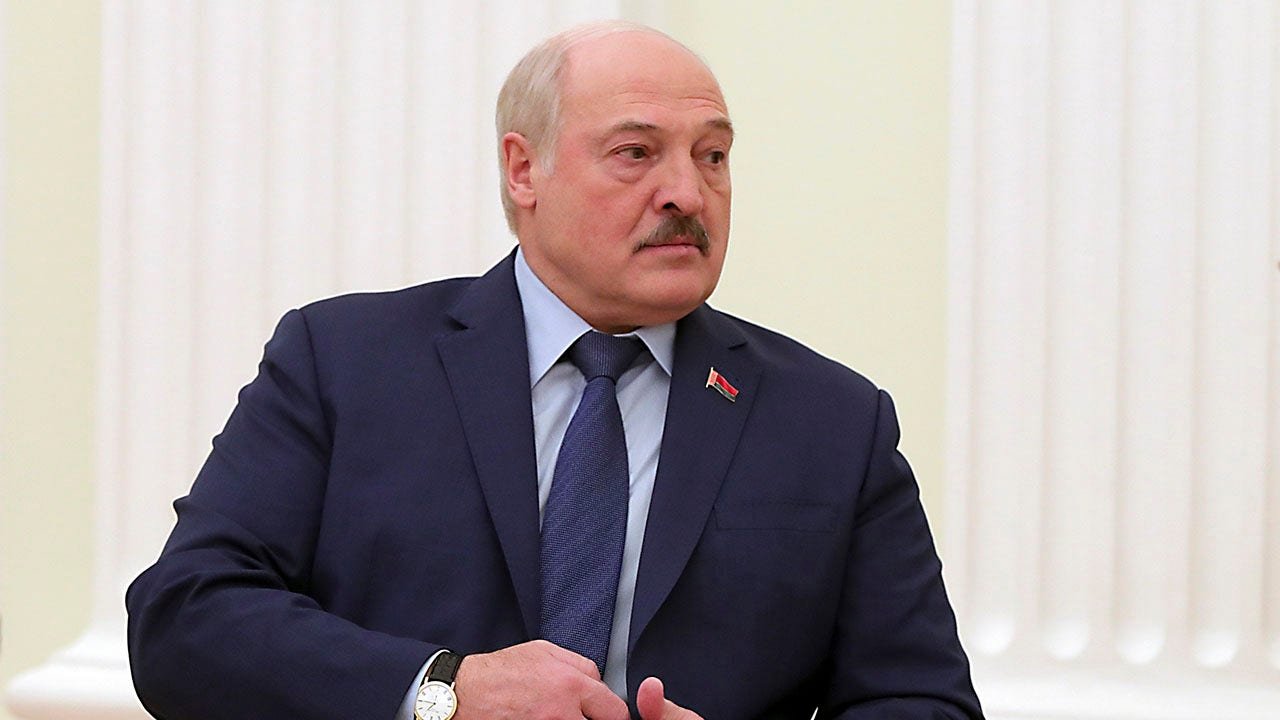
- Belarusian authorities said Monday that they will not invite the Organization for Security and Cooperation in Europe to monitor the nation’s Feb. 25 elections.
- Minsk «has informed the OSCE about its intention not to invite observers and offered its arguments and motivation,» according to international delegate Andrei Dapkiunas.
- The move is considered yet another power grab by the authoritarian regime of President Alexander Lukashenko, a close ally of Russian President Vladimir Putin.
Belarusian authorities on Monday said they will not invite observers from the Organization for Security and Cooperation in Europe to monitor the country’s parliamentary and local elections, scheduled for Feb. 25.
The move is the latest authoritarian President Alexander Lukashenko has undertaken in recent years to further cement his control over the country’s political institutions.
Belarus «has informed the OSCE about its intention not to invite observers and offered its arguments and motivation,» said Andrei Dapkiunas, Belarus’ permanent representative to international organizations in Vienna.
BELARUS’ AUTHORITARIAN LEADER TIGHTENS CONTROL OVER THE COUNTRY’S RELIGIOUS GROUPS
Belarus is a member of the OSCE, and members of its Office for Democratic Institutions and Human Rights have been the only international observers at Belarusian elections for decades.
The parliamentary vote on Feb. 25 will be the first election since the contentious 2020 presidential balloting that gave Lukashenko his sixth term in office and triggered an unprecedented wave of mass protests around the country.
Lukashenko’s government responded to the demonstrations with a harsh crackdown, arresting more than 35,000 people. Many of those have been brutally beaten by police and were forced to leave the country.
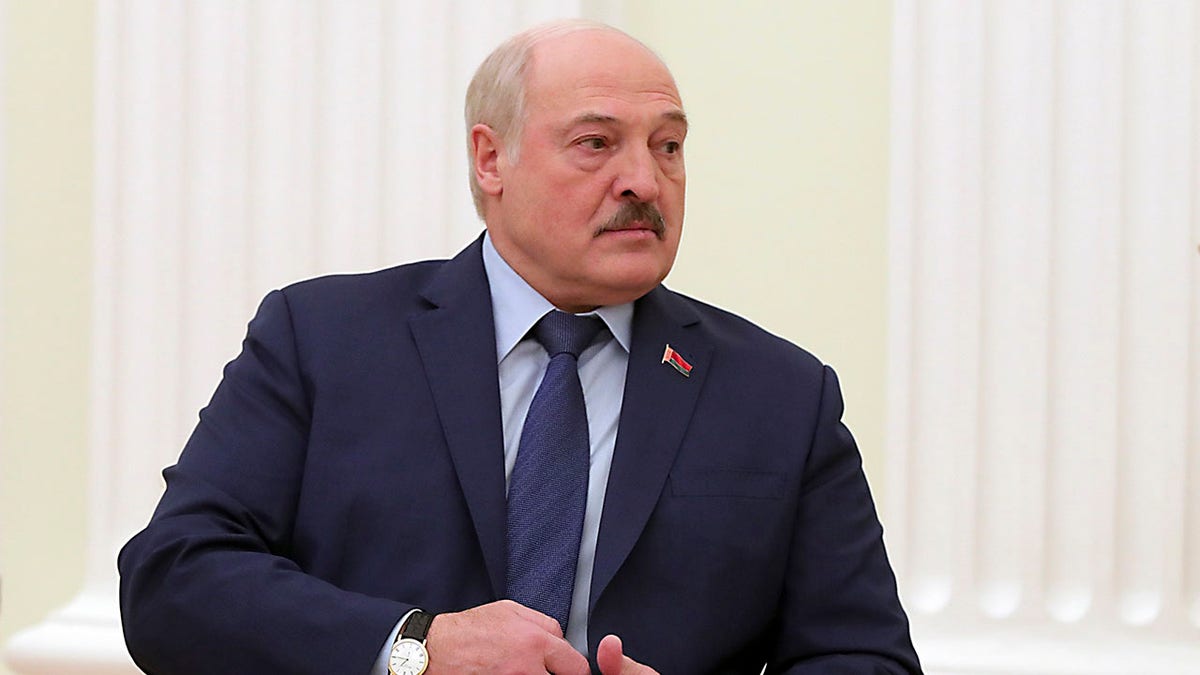
Belarusian President Alexander Lukashenko listens to Russian President Vladimir Putin during their meeting in Moscow, Russia, Friday, March 11, 2022. (Mikhail Klimentyev, Sputnik, Kremlin Pool Photo via AP)
This year’s election will take place amid continued repressions and as some 1,500 political prisoners remain behind bars, including leaders of opposition parties and renowned human rights advocate and 2022 Nobel Peace Prize winner Ales Bialiatski.
Belarusian authorities have also carried out «re-registration» of political parties operating in the country of 9.5 million, granting credentials to only four pro-government parties out of 15 that had operated in the country at the beginning of last year. Opposition politicians are not expected to get on the ballot.
Ihar Karpenka, the head of Belarus’ Central Election Commission, said that the election will take place «under full control of the authorities and without destructive influences.»
«Belarus holds the election for itself first and foremost,» Karpenka said, adding that Belarusian authorities will invite observers from Russia and Central Asian nations.
Since 1995, all elections and referendums in Belarus have been deemed by the Office for Democratic Institutions and Human Rights of the OSCE as not conforming to the organization’s standards and being neither transparent nor fair. Meanwhile, observers from Russia and countries allied with Belarus view all the votes within the country as democratic.
LUKASHENKO SIGNS LAW GRANTING SELF CRIMINAL IMMUNITY FOR LIFE
Belarusian opposition leader Sviatlana Tsikhanouskaya, in exile in neighboring Lithuania, urged Belarusians to boycott the February vote, calling it «a farce without international monitoring.»
«Lukashenko’s regime did everything to make the change of power through elections impossible in the country,» Tsikhanouskaya said.
Once both the parliamentary vote and local elections are concluded, a new state body will be formed — the All-Belarusian People’s Assembly. It will feature 1,200 delegates that will include officials, members of local councils, unions, pro-government activists and others, and will operate in parallel with the parliament, which consists of two chambers: the lower house of 110 lawmakers and the upper house of 64 senators.
CLICK HERE TO GET THE FOX NEWS APP
The Assembly, created by Lukashenko, has broad powers and can decide on policies, draft legislation, propose constitutional amendments, appoint members of the election commission and judges. According to the law, the president of Belarus automatically becomes a member of the Assembly after stepping down.
INTERNACIONAL
French PM to resign as leftists nab plurality of parliamentary seats in snap election

A far-left political coalition that unexpectedly assembled ahead of France’s snap elections is projected to win the plurality of parliamentary seats up for grabs and the country’s prime minister has announced his intention to resign – leading the country into unforeseen territory and possible turmoil.
As the election results came in, French Prime Minister Gabriel Attal announced he will be turning in his resignation on Monday.
President Emmanuel Macron’s centrist alliance was projected to take the second most seats, while the far right was projected to come in third.
Macron called the snap election just four weeks ago, after the right-wing National Rally (RN) scored enormous success in the European Parliamentary elections in June. Polling before the first round of voting indicated RN would continue to dominate. However, more recent polling ahead of the runoff indicates those returns have diminished and RN will fall short of a clear majority.
FRENCH ELECTION PREVIEW: POLLS SHOW RIGHT-WING PARTY LEADS RUNOFF AS OPPONENTS URGE TACTICAL VOTING
French Prime Minister Gabriel Attal delivers a speech after the second round of the legislative elections, Sunday, July 7, 2024, in Paris. (AP Photo/Aurelien Morissard)
The first round occurred on June 30 and resulted in just 76 of the 577 constituencies in the French National Assembly determining their representative. Candidates who did not receive an outright majority in the first round of voting went on to a second-round runoff, which happened on Sunday.
Going into the election, France was set to elect the RN as the largest party in government, though it was possible no party might emerge with a clear majority in the tightly contested election.
When the results started to come in, projections changed toward the left, signifying a lack of majority for any single alliance, which threatened to plunge France into economic and political turmoil.
FRANCE’S RIGHT-WING NATIONAL RALLY LOOKS TO SEIZE ON RECENT ELECTORAL GAINS
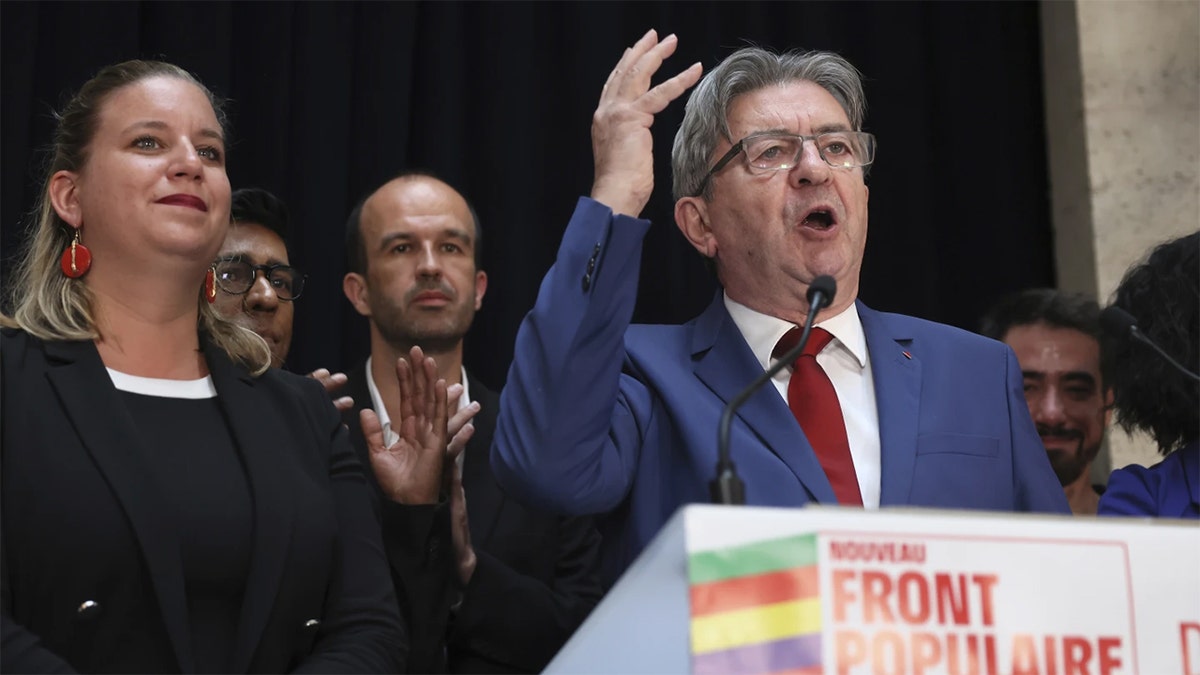
Far-left La France Insoumise – LFI – (France Unbowed) founder Jean-Luc Melenchon delivers a speech at the party election night headquarters, Sunday, July 7, 2024 in Paris. (AP Photo/Thomas Padilla)
The final results of the election are not expected until late Sunday or early Monday.
Macron made a huge gamble when he called for the snap election, and the projections show the gamble may not have paid off for the unpopular president and his alliance, which lost control of parliament.
While the far-right RN greatly increased the number of seats it now holds in parliament, the results fell short of the party’s expectations.
FRANCE’S GOVERNMENT SPOKESPERSON IS ATTACKED ON CAMPAIGN TRAIL, DAYS BEFORE DECISIVE ELECTION

Supporters of the Socialist Party react after the second round of the legislative elections, Sunday, July 7, 2024, at their election night headquarters in Paris. (AP Photo/Aurelien Morissard)
Far-left leader Jean-Luc Mélenchon urged Macron to invite the leftist New Popular Front coalition to form a government, given projections that put it in the lead.
Macron’s office said the president would «wait for the new National Assembly to organize itself» before making any decisions.
RIVALS MOVE TO BLOCK FRANCE’S RIGHT-WING NATIONAL PARTY’S ELECTION MOMENTUM
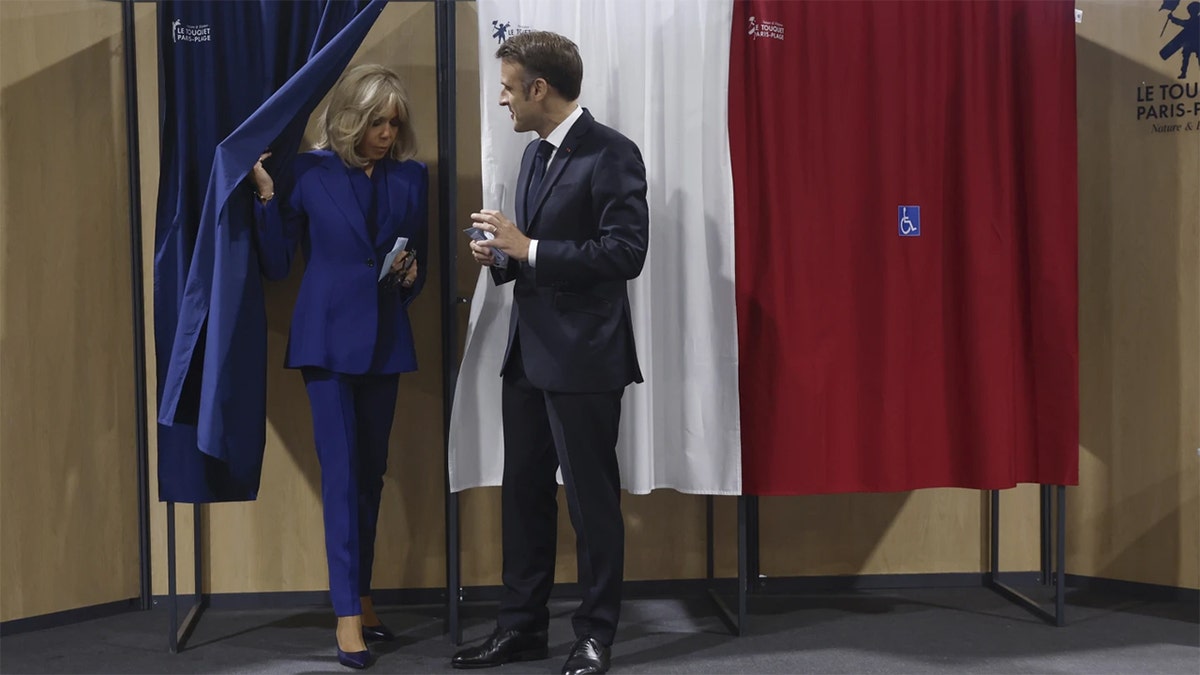
French President Emmanuel Macron and his wife Brigitte Macron leave the voting booth before voting for the second round of the legislative elections in Le Touquet-Paris-Plage, northern France, Sunday, July 7 2024. Voting has begun in mainland France on Sunday in pivotal runoff elections that could hand a historic victory to Marine Le Pen’s far-right National Rally and its inward-looking, anti-immigrant vision — or produce a hung parliament and political deadlock. (Mohammed Badra, Pool via AP)
A hung parliament with no single bloc coming close to getting the 289 seats needed for an absolute majority in the National Assembly, the more powerful of France’s two legislative chambers, would be unknown territory for modern France.
France doesn’t have a tradition of lawmakers from rival political camps coming together to form a working majority.
CLICK HERE TO GET THE FOX NEWS APP
The projections, if confirmed by official counts, will spell intense uncertainty for a pillar of the European Union and its second-largest economy, with no clarity about who might partner with Macron as prime minister in governing France.
Fox News Digital’s Peter Aitken and The Associated Press contributed to this report.
-
POLITICA1 día ago
Detuvieron a un hombre armado a metros del acto de Milei en San Juan
-
ECONOMIA3 días ago
La inflación de junio rondaría el 5,2% según los analistas consultados por el Banco Central
-
POLITICA2 días ago
El Gobierno busca bajar la tensión con el PRO y dice que cumplirá el fallo por la coparticipación a la Ciudad que reclamó Macri
-
POLITICA3 días ago
Federico Sturzenegger es el nuevo ministro de Desregulación y Transformación del Estado
-
POLITICA2 días ago
Caso Loan: incidentes en la puerta del Juzgado Federal tras la detención de Laudelina Peña
-
POLITICA16 horas ago
En Brasil aseguran que el gobierno podría retirar a su embajador en Buenos Aires si Javier Milei ofende a Lula en su discurso en el encuentro organizado por los Bolsonaro

